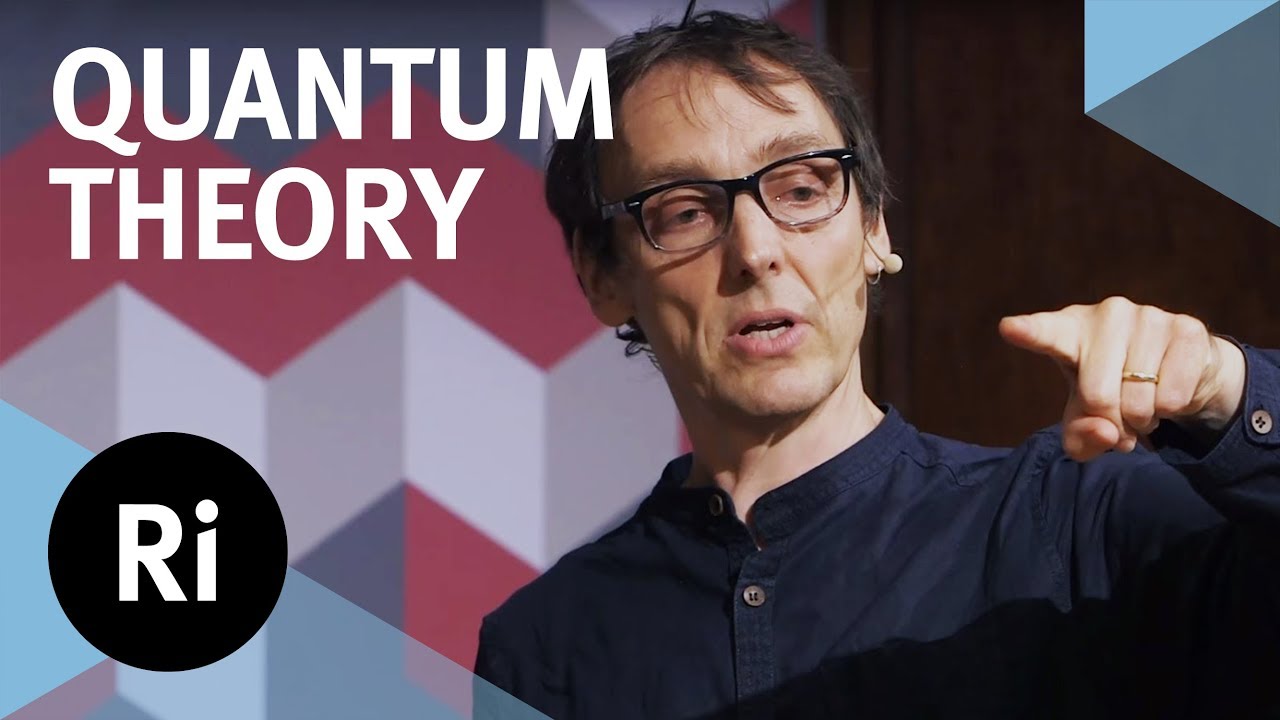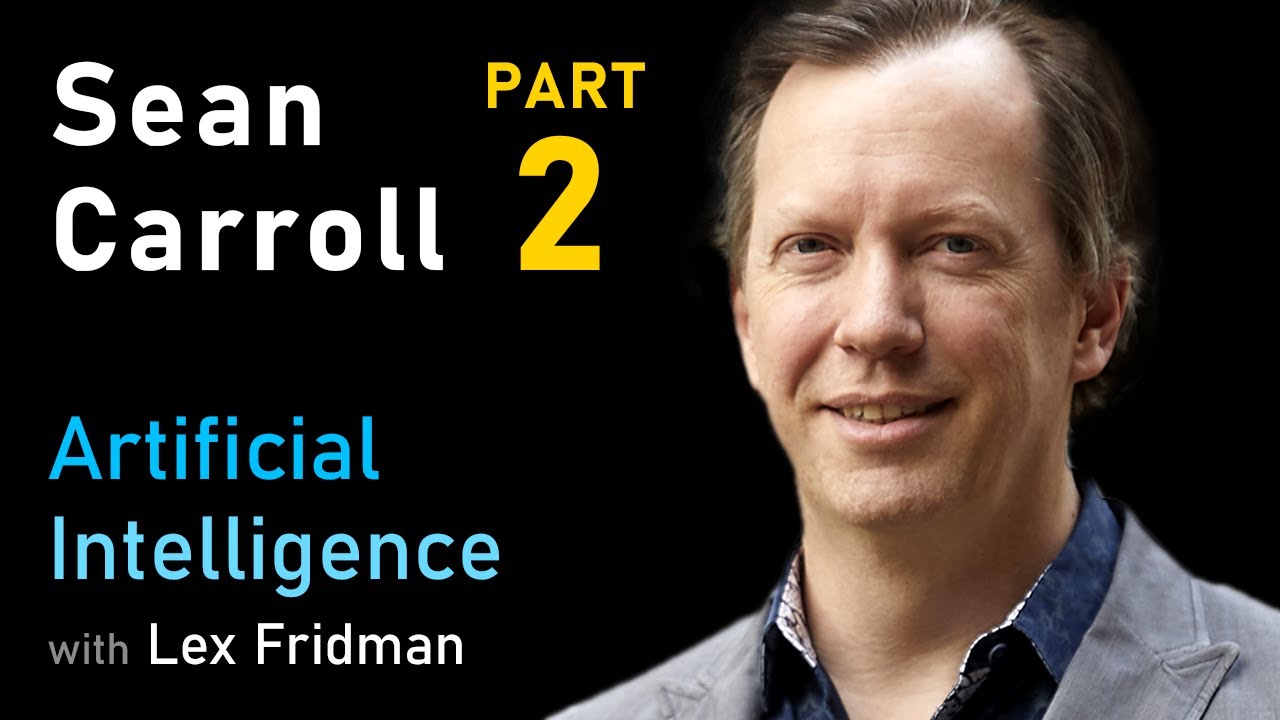The Royal Institution
Quantum physics has a reputation as one of the most obscure and impenetrable subjects in science.
Subscribe for regular science videos: http://bit.ly/RiSubscRibe
Philip Ball will talk about what quantum theory really means – and what it doesn’t – and how its counterintuitive principles create the world we experience.
Watch the Q&A: https://youtu.be/W1OoVw-M6os
Philip Ball is a freelance science writer. He worked previously at Nature for over 20 years, first as an editor for physical sciences (for which his brief extended from biochemistry to quantum physics and materials science) and then as a Consultant Editor. His writings on science for the popular press have covered topical issues ranging from cosmology to the future of molecular biology.
—
A very special thank you to our Patreon supporters who help make these videos happen, especially:
Alessandro Mecca, Ashok Bommisetti, Avrahaim Chein, bestape, Elizabeth Greasley, Greg Nagel, Lester Su, Manish Upmanyu, Rebecca Pan, Robert D Finrock and Will Knott.
—
The Ri is on Patreon: https://www.patreon.com/TheRoyalInstitution
and Twitter: http://twitter.com/ri_science
and Facebook: http://www.facebook.com/royalinstitution
and Tumblr: http://ri-science.tumblr.com/
Our editorial policy: http://www.rigb.org/home/editorial-policy
Subscribe for the latest science videos: http://bit.ly/RiNewsletter
Source




Huzzah! Thanks to the generous support of our Patreon supporters, we now have English language subtitles for this video! If you have a spare dollar or pound to support our work, you can head over to Patreon too and see what we're up to: https://www.patreon.com/TheRoyalInstitution
5 commercial interruptions in 42 minutes. on a physics lecture no less. how pathetic
I've had a kind of wondering recently.What if we will have found by a explore quantum mechanics deeper and more precisely a mistake/bug in the code of the universe.Would it have opened a window to our knowledge or have created an unbreakable wall for more studies?
Would any theoretical physicist like to disabuse me of the conviction that entanglement is simply synchronisation?
Fell asleep twice watching this.. ?
I'm surprised he didn't mention Schöders cat :-p
.
Miauw
A few years ago I was sitting in a tram in Den Hague where I saw 4 very young children walking (the oldest looked 5 and the other kids 3 and 4. It was around noon but still I was fear-stricken by these kids walking without chaperones. I turned my head to the left and turned back to the right in just 2 or 3 seconds. To my surprise there were now 3 women holding hands with the kids and only a kid who walked in front of the others was alone. As you may try to comprehend , seeing is believing and so I rest in peace for I do not have to doubt what my eyes have seen. #teleportation
TLDR: This is a science journalist talking about the Einstein-Podolsky-Rosen-paradox and Bells inequality. He has an idea that quantum superposition is just lack of information, but he doesn't mention Heisenbergs uncertancy principle and the fact that not all observables cumute (So in some situations you cannot have full information about all observables at the same time).
I would propose that all waves are actually spirals. They have been viewed on 2 dimensions but the waves are spirals just like orbits.
I think a better explanation of the wave function than superposition, is the bean machine.
I understood it perfectly, which makes me love quantum physics even more !
I wasn't sure weather I failed my maths at school , but now I am positive I did!!
Disappointing. The book is actually really good, but this presentation is just a mess. Don't bother listening. Just read the book if you're interested.
Why do I feel irritated ? Why is he reading ? If he is an expert at RI does he need to read?
Typo on your first slide in the first 10 seconds of the talk – not a good start…
Quantum mechanics is all hyped up bull crap. There's no such thing as a superposition cat. The only thing spooky or tangled is the mind of these fools Just ask Albert Einstein and David Bohm.
The summary statement of the Heisenberg Uncertainty Principle at about 3:00–3:48 is inaccurate (and this wrong) due to its brevity. Only INCOMPATIBLE observables (e.g. position and momentum, or energy and time, etc.) cannot simultaneously measured or known. This observation leads to one of the most significant understandings of the Quantum Theory…. that because our measurements are done using light, the Planck constant is always involved in the uncertainty, and that the Quantum Theory, it is present state, only describes the observers state of knowledge of the system.
Schrodinger arrives at the vets to pick up his cat. The vet says, "Well, Mr. Schrodinger, I've got some good news and some bad news…"
QM-TIMESPACE wave-package is a composite of resonant tuning, the multi-phase state.
Quantum Entanglement for me , oddly enough, is one of the EASIEST quantum concepts to understand in a REAL mechanistic way. And it doesn't involve "spooky action at a distance". In the most simplistic example, it involves two particles that oscillate between two different states (say spin-up or spin-down). The particles are "entangled" when one is spin-up while the other is SIMULTANEOUSLY spin-down AND their state-to-state oscillations are IDENTICAL. In other words, if the time it takes the two particles to oscillate from one state to the other is identical, and one is measured spin-up while the other is measured spin-down, then it NEVER matters when you measure them…they will ALWAYS be opposite in state…regardless of WHEN you measure them or how far apart they are from each other. No "communication" between particles is necessary. In fact, the experiment itself literally FORCES this outcome. It is SEEKING particles that are 180 degrees out of phase (in a 2-state system) and oscillating synchronously. Do mainstream physicists really not understand this? Or is it just sexier physics and more intriguing to call something incomprehensible and "spooky"?
So a real life example of quantum physics might be a bingo machine?
I think that Ball is mistaken to think that ‘ifness’ can largely supplant ‘isness’. For example, his claim (at 39:32), that we shouldn’t think of an unobserved particle as being in multiple locations simultaneously, is demonstrably false. The fact that there is a non-zero probability of finding a particular electron at a certain location (‘if we look’, as Ball emphasises), but not a probability of 1, implies that the laws of nature somehow associate that electron with that location. (They do so via the Schrodinger equation, of course, as Ball explained.) Now, parsimony requires that, when we speak of the laws of nature, we are really just describing the properties of physical objects. (William of Ockham would certainly disapprove of our positing a new type of entity to explain the regularities of nature, when the properties of physical objects are quite capable of doing so.) Therefore, the properties of our unobserved electron associate it with the given location. Furthermore, those properties make the electron causally responsive to what happens at the given location, for if we look for it there, it will change from a state in which it might be discoverable there into a very different state: either one in which it is definitely there or one in which it is definitely not there. Finally, we note that, wherever a property is operative, it is also instantiated (present in a substance). This is because an abstraction cannot function on its own. (E.g., the number seven cannot do anything; there must be seven substances that do something in order for the number seven to have a role in an event.) Therefore, the substance in which the properties of our unobserved electron are instantiated—i.e., the electron itself—must be present at the given location, and the same reasoning applies to every other location at which our electron could possibly be detected. Therefore, our unobserved electron is present at all locations at which it could possibly be detected.
Not surprised to see a science writer only has a basic understanding of quantum mechanics and just spouts quotes from those that do and then give a basic of not childish intro to probabilities. This has made us all dumber for listening to it.
Constantly looking at your notes is not a nice way of delivering lectures 🙂
Am i the only one that thought he is just plain wrong after 10mins of listening, and he just keep building on it afterwards
Supposedly "smart people" behaving totally apishly, narcissistic and with psychological salience here, as always on the internet… Probably hardly anyone here with even academic background, or all that "smart". (Usually one can rule that out with absolute precision if it even becomes a topic.)
That is just another way to say of course that this talk is totally harmless but interesting, and intellectually useful, nonetheless. For one, exactly to rule out some false conceitedness (no matter how trivial still), which dumb animals of course react to instinctually…(So showing they cannot have advanced to semester 2, or even 1, in any field, because they shouldn't react to simple argument so apishly, both rejecting and preferring to make a show of exactly such closeminded conceitedness instead…)
How is entanglement and superposition different?
It looks like everything is already entangled, then we isolat two particle/region of space and time. We make them synchronize.
Synchronize to the point that they are identical.
This should illustrate that the whole universe is in a state of entanglement.
It is the bending of space and time that makes it look so divers.
So each point in the universe is the singularity of the big bag in a superposition and spread through space and time.
To say it like that is missleading.
Let me do that again:
The singularity of the big bang is in a superposition state. Some of these states are expressed in our universe as perceived objects. When in fact those objects are just space.
19:23 "connect be no physical objects" . Yet connected by the vacuum, wich is indeed, not a thing.
Can’t follow
Seems the act of all those observing caused him to make a mess of his presentation. Meanwhile in another universe everyone understood his box analogy.
Why the hell am i watching this? I’m 11 years old.
This is some alien shit that we don't understand
what I don't get is the rule that atoms can never be created nor destroyed and yet some physicists say that every action we take we create many new universes that follow our decisions to complete every action possible in the situation. I see the yes or no response and could say that at the most maybe there is one other universe that is the opposite of this one but that would also be incorrect since we can observe the entanglement in our one universe and we wouldn't have even been able to discover this if it weren't that all of the atoms have some counterpart right here. so parallel universes in my opinion is totally absurd. please tell me how I could be wrong on this.
I appreciate this talk because scientists are always saying " that's the wrong question to ask". I hear it over and over again. So this is a refreshing look at that phrase. Nice viewpoint and it makes sense.